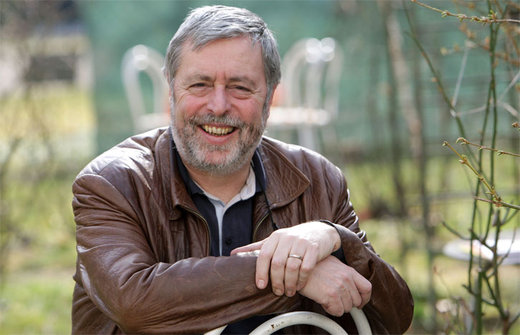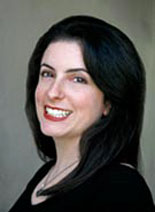Serena Bazemore, Duke University
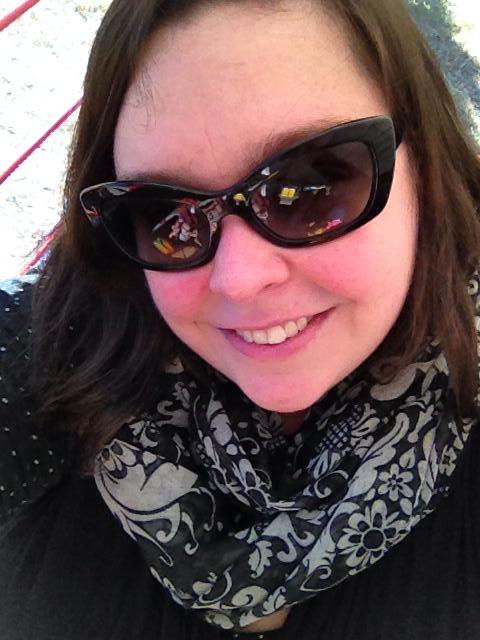
Serena Bazemore (BA English, University of California, Berkeley; MA, History, North Carolina State University) is a historian of religion, Program Director at Duke University’s Center for Jewish Studies, and coordinator of the Center for Late Ancient Studies, as well as of the Jewish Heritage Foundation of North Carolina (JHFNC). Her research interests focus on comparative religion and interreligious exchange, and she is currently studying late medieval haggadot and psalters. She has completed an MA thesis, The Twelfth Century Renaissance and the Religion of Intent: Interiority and the Emergence of Selfhood across Religious Boundaries under Professor Julie Mell at NCSU.
James Chappel, Duke University
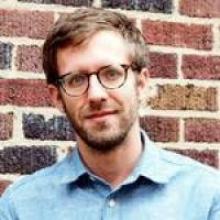
James Chappel received his PhD in History from Columbia University in 2012. He was in the Society of Fellows at the University of Chicago for one year before becoming an assistant professor of History at Duke. He is finishing a book tentatively entitled Spiritual Welfare: Catholic Political Economy and the Remaking of Europe, 1920-1970, which is about social Catholicism and the origins of democratic capitalism in France, Germany, and Austria.
Kata Gellen, Duke University
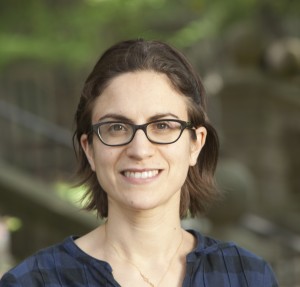
Kata Gellen is Assistant Professor of German at Duke University. Her main areas of research are German literary modernism, German-Jewish culture, Weimar cinema, and Austrian literature. She is currently completing a manuscript on sound in the work of Franz Kafka entitled Kafka and Noise: The Discovery of Cinematic Sound in Literary Modernism. Her next project will examine the twentieth-century East European German-Jewish novel, or Galizienroman, as a modernist form. She has published articles on Franz Kafka, Elias Canetti, Joseph Roth, Thomas Bernhard, and the films of Fritz Lang, F. W. Murnau, and Josef von Sternberg.
Malachi Haim Hacohen, Duke University
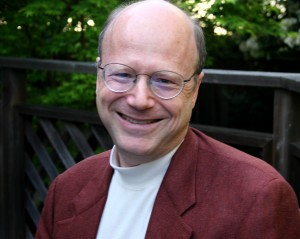 Malachi Haim Hacohen (Ph.D., Columbia) is Bass Fellow, Associate Professor of History, Political Science and Religion, Slavic, German and Jewish studies. He is also the Director of the Center for European Studies at Duke University. His Karl Popper – The Formative Years, 1902–1945: Politics and Philosophy in Interwar Vienna (Cambridge, 2000) has won the Herbert Baxter Adams Prize of the AHA and the Victor Adler State Prize. He has published essays on the Central European Jewish intelligentsia, Cold War liberalism, and cosmopolitanism and Jewish identity in The Journal of Modern History, The Journal of the History of Ideas, History and Theory, History of Political Economy, Jewish Social Studies, and other journals and collections. His Jacob & Esau Between Nation and Empire: A Jewish European History is forthcoming with Cambridge University Press.
Malachi Haim Hacohen (Ph.D., Columbia) is Bass Fellow, Associate Professor of History, Political Science and Religion, Slavic, German and Jewish studies. He is also the Director of the Center for European Studies at Duke University. His Karl Popper – The Formative Years, 1902–1945: Politics and Philosophy in Interwar Vienna (Cambridge, 2000) has won the Herbert Baxter Adams Prize of the AHA and the Victor Adler State Prize. He has published essays on the Central European Jewish intelligentsia, Cold War liberalism, and cosmopolitanism and Jewish identity in The Journal of Modern History, The Journal of the History of Ideas, History and Theory, History of Political Economy, Jewish Social Studies, and other journals and collections. His Jacob & Esau Between Nation and Empire: A Jewish European History is forthcoming with Cambridge University Press.
Felicitas Heimann-Jelinek, Vienna
 Felicitas Heimann-Jelinek has been a curator in Jewish museums in Europe and the U.S. since 1984, and, for eighteen years (1993-2011), the chief curator of the Jewish Museum in Vienna. She works presently as university lecturer, freelance curator, researcher, and museum consultant, and collaborates with Michaela Feurstein-Prasser on exhibit.at. Her scholarly foci are Jewish art and museology. She studied in Vienna and Tel Aviv, and received her PhD in from the University of Vienna with a dissertation in Jewish cultural history.
Felicitas Heimann-Jelinek has been a curator in Jewish museums in Europe and the U.S. since 1984, and, for eighteen years (1993-2011), the chief curator of the Jewish Museum in Vienna. She works presently as university lecturer, freelance curator, researcher, and museum consultant, and collaborates with Michaela Feurstein-Prasser on exhibit.at. Her scholarly foci are Jewish art and museology. She studied in Vienna and Tel Aviv, and received her PhD in from the University of Vienna with a dissertation in Jewish cultural history.
Helmut Konrad, Karl-Franzens-Universität Graz
Helmut Konrad is Professor of Contemporary History at the University of Graz and Director of the Ludwig Boltzmann Institute for Cultural History, Linz-Graz. He has previously served as Dean of the Faculty of Humanities and Rector of the University of Graz. He received his PhD from the University of Vienna with highest distinction, in 1973, and his habilitation at the University of Linz in 1980. He has been a Visiting Professor at Yale University and Cornell University (USA), the Univerity of Waterloo (Canada), and the European University Institute (Italy), and receivhed an honorary degree from the University of Shkodra (Albania) in 1996. He is a member of the Board of Austriaca, Paris, and of the Austrian History Yearbook, Minneapolis. He has published seven books, 41 edited volumes, and 250 articles. He has received various awards, including the Theodor Koerner Prize, the Victor Adler Prize, the Vienna Award 2002 for Humanities, and the Verkauf-Verlong Prize for antifascist literature in 2008.
Ilse Josepha Lazaroms, Center for Jewish History, New York
![Ilse Lazaroms - author pic 2016[1]](http://sites.duke.edu/esj4/files/2016/02/Ilse-Lazaroms-author-pic-20161-e1457719146785-278x300.jpeg)
Ilse Josepha Lazaroms, a Prins Foundation Fellow at the Center for Jewish History in New York, is a historian of modern Europe. She received her PhD from the European University Institute in Florence, Italy, in 2010. Her first book, The Grace of Misery: Joseph Roth and the Politics of Exile, 1919–1939 was awarded the Victor Adler Prize from the Austrian Federal Ministry of Science, Research and Economy in 2015. Her articles have appeared in the Leo Baeck Yearbook, the Simon Dubnow Institute Yearbook, and Zutot: Perspectives on Jewish Culture. She is currently writing her next book, Emigration from Paradise: Hungarian Jewish Histories of Home, 1880s to 1920s, and a novel.
Richard Lambert, Duke University
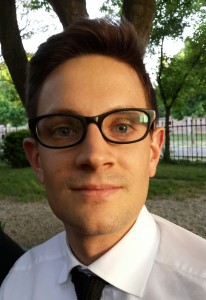
Richard Lambert (BA German, University of Pennsylvania) is a graduate student in the Carolina-Duke Joint Program in German Studies. In 2014, Richard was awarded a Fulbright Grant to conduct dissertation research at the Ludwig Boltzmann Institut für Geschichte und Gesellschaft in Vienna, Austria. His dissertation examines the intersection of experience, language, and the experiment in the late Modernist novels of Hermann Broch and Robert Musil. His broader research interests include: Austrian Literature, German-language Modernism, Science in Literature, and theories of language.
Gerhard Milchram, Wien Museum

Gerhard Milchram is historian and curator at the Wien Museum, where he has recently oversaw, with Susanne Breuss, “Vienna in the First World War. City Life in Photography and Graphic Arts.” Until 2010, he was for many years the curator of the Vienna Jewish Museum, where he oversaw numerous exhibitions, among them, “Ceija Stojka – live” (2004); “Tennenbaum is Now Angry ” (2005), with Felicitas Heimann-Jelinek; “Ordnung muss sein. The Archive of the Jewish Community of Vienna,” with Felicitas Heimann-Jelinek and Ingo Zechner (2007); “Did you see my Alps? A Jewish Love Story,” with Hanno Loewy (2009); “The Turks in Vienna: History of a Jewish Community,” with Felicitas Heimann-Jelinek and Gabriele Kohlbauer-Fritz (2010); and, with Felicitas Heimann-Jelinek, the new permanent exhibition at the Museum Judenplatz (2010).
Thomas Prendergast, Duke University
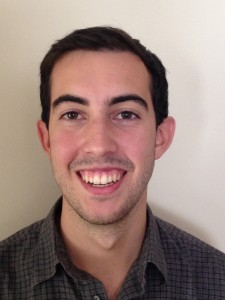 Thomas Prendergast is a PhD student in Modern European History and Perilman Fellow in Judaic Studies at Duke University. His work is focused on the idea of empire in East Central Europe and its relationship to cosmopolitan political projects, particularly the role this region’s multi-lingual and multi-confessional identity played in the formation and articulation of alternative, supranational visions of political modernity. Currently, he is exploring the impact of Jewish scholars on the development of ethnography and sociology in Austria.
Thomas Prendergast is a PhD student in Modern European History and Perilman Fellow in Judaic Studies at Duke University. His work is focused on the idea of empire in East Central Europe and its relationship to cosmopolitan political projects, particularly the role this region’s multi-lingual and multi-confessional identity played in the formation and articulation of alternative, supranational visions of political modernity. Currently, he is exploring the impact of Jewish scholars on the development of ethnography and sociology in Austria.
Béla Rásky, Vienna Wiesenthal Institute
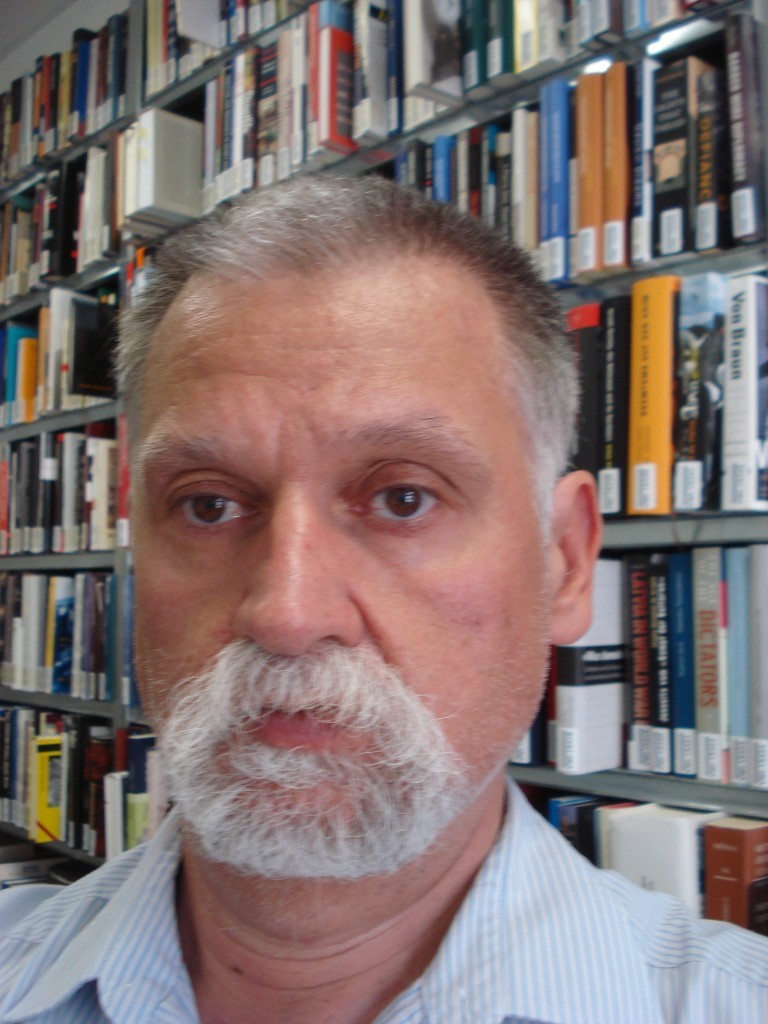 Béla Rásky is the Administrative Director of the Vienna Wiesenthal Institute for Holocaust Studies (VWI). Until 2003, he was Director of the Austrian Science and Research Liaison Office in Budapest. A historian whose work focuses on the First Republic of Austria and the memory of the Habsburg Monarchy in Austria and Hungary, he has contributed to numerous projects and exhibitions, including the organisation of the literary estates of Felix Hurdes, Emmerich Czermak, Vinzenz Schumy and Christian Broda. He was co-organiser of the exhibitions “Die Kälte des Februar,” “3 Tage im Mai,” “Flucht nach Wien,” and “Wien um 1930,” and has contributed for many years to the Österreichische Kulturdokumentation. Internationales Archiv für Kulturanalysen. Among his numerous translations from Hungarian are István Bibó’s “Zur Judenfrage” and Jenö Szücs’ “Die drei historischen Regionen Europas.”
Béla Rásky is the Administrative Director of the Vienna Wiesenthal Institute for Holocaust Studies (VWI). Until 2003, he was Director of the Austrian Science and Research Liaison Office in Budapest. A historian whose work focuses on the First Republic of Austria and the memory of the Habsburg Monarchy in Austria and Hungary, he has contributed to numerous projects and exhibitions, including the organisation of the literary estates of Felix Hurdes, Emmerich Czermak, Vinzenz Schumy and Christian Broda. He was co-organiser of the exhibitions “Die Kälte des Februar,” “3 Tage im Mai,” “Flucht nach Wien,” and “Wien um 1930,” and has contributed for many years to the Österreichische Kulturdokumentation. Internationales Archiv für Kulturanalysen. Among his numerous translations from Hungarian are István Bibó’s “Zur Judenfrage” and Jenö Szücs’ “Die drei historischen Regionen Europas.”
Lisa Silverman, University of Wisconsin at Milwaukee
Lisa Silverman is Associate Professor of History and Jewish Studies at the University of Wisconsin-Milwaukee. She is author of Becoming Austrians: Jews and Culture between the World Wars (Oxford UP, 2012), co-author with Daniel H. Magilow of Holocaust Representations in History: an Introduction (Bloomsbury, 2015), as well as co-editor with Arijit Sen of Making Place: Space and Embodiment in the City (Indiana UP, 2014) and co-editor with Deborah Holmes of Interwar Vienna: Culture between Tradition and Modernity (Camden House, 2009). A specialist in modern European Jewish history, her interests include German and Austrian Jewish culture, visual culture, and gender.
Katherine Sorrels, University of Cincinnati
![Kate Sorrels[1]](http://sites.duke.edu/esj4/files/2016/02/Kate-Sorrels1-234x300.jpeg)
Katherine Sorrels is Assistant Professor of History and affiliate faculty in Judaic Studies at the University of Cincinnati. She specializes in modern Central European cultural and intellectual history, with particular interests in modern Jewish history, pacifism and internationalism, the scientific study of race, and empires and colonialism. She received her PhD from University of Pittsburgh in 2009. Her book, Cosmopolitan Outsiders: Imperial Inclusion, National Exclusion, and the Pan-European Idea, 1900-1930, will be published by Palgrave Macmillan in 2016.
Georg Spitaler, Verein für Geschichte der ArbeiterInnenbewegung (VGA)
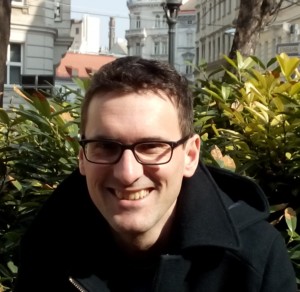 Georg Spitaler is Researcher at the Association for the History of the Labor Movement (VGA) in Vienna. He studied political science and history at the University of Vienna and was a junior fellow at the IFK (2002-3) and Duke University (2004). He held a post-doctoral position at the Institute of Political Science of the University of Vienna and served as a Lecturer at the University of Applied Arts. He is recipient of the Victor Adler State Prize for younger scholars for his book Authentischer Sport – inszenierte Politik? He has published widely in cultural studies and football history and is a national research partner of the FWF project “Jewish sports officials in Vienna between the wars,” and has recently co-edited books on Friedrich Adler and Julius Deutsch.
Georg Spitaler is Researcher at the Association for the History of the Labor Movement (VGA) in Vienna. He studied political science and history at the University of Vienna and was a junior fellow at the IFK (2002-3) and Duke University (2004). He held a post-doctoral position at the Institute of Political Science of the University of Vienna and served as a Lecturer at the University of Applied Arts. He is recipient of the Victor Adler State Prize for younger scholars for his book Authentischer Sport – inszenierte Politik? He has published widely in cultural studies and football history and is a national research partner of the FWF project “Jewish sports officials in Vienna between the wars,” and has recently co-edited books on Friedrich Adler and Julius Deutsch.
Gabriel Trop, University of North Carolina – Chapel Hill
 Gabriel Trop is an Assistant Professor in the Department of Germanic and Slavic Languages and Literatures at the University of North Carolina, Chapel Hill. In addition to articles about Hölderlin, Goethe, Novalis, Schelling, Wieland and other authors, he has written a book entitled Poetry as a Way of Life: Aesthetics and Askesis in the German Eighteenth Century published by Northwestern University Press.
Gabriel Trop is an Assistant Professor in the Department of Germanic and Slavic Languages and Literatures at the University of North Carolina, Chapel Hill. In addition to articles about Hölderlin, Goethe, Novalis, Schelling, Wieland and other authors, he has written a book entitled Poetry as a Way of Life: Aesthetics and Askesis in the German Eighteenth Century published by Northwestern University Press.
Andreas Weigl, University of Vienna
 Andreas Weigl, born in Vienna in 1961, is an assistant professor at the University of Vienna, Department of Economic and Social History, and a member of the scientific staff of the Municipal and Provincial Archives of Vienna. He was a visiting professor at the University of Innsbruck in 2010 and at the University of Vienna in 2012. Since 2011 he has served as the head of the, Austrian Urban History Research Group. His main fields of research are historical demography, urban history, economic history of the tertiary sector and social history of medicine.
Andreas Weigl, born in Vienna in 1961, is an assistant professor at the University of Vienna, Department of Economic and Social History, and a member of the scientific staff of the Municipal and Provincial Archives of Vienna. He was a visiting professor at the University of Innsbruck in 2010 and at the University of Vienna in 2012. Since 2011 he has served as the head of the, Austrian Urban History Research Group. His main fields of research are historical demography, urban history, economic history of the tertiary sector and social history of medicine.
Deirdre White, Duke University

Deirdre White is a cultural anthropologist and classical musician with a special interest in the interrelationship between music and First Nations peoples. She is Program Director of Council for European Studies at Duke University, as well as coordinator of the Africa Initiative at Duke University, the Triangle Intellectual History Seminar and the North Carolina Jewish Studies Seminar. She holds a BA in Cultural Anthropology from New York University, and her forthcoming Masters Thesis (Cultural Anthropology, University of Alberta, 2016), ‘The Social Life of Sound: Urban Indigenous Youth, Hip Hop and Hardcore,’ centers on the ways in which musical engagement has impacted the emotional and social well-being of Métis, First Nations and First Nations-allied youth in Canada and the U.S.
Sasha White, Canada/USA
 Although she lacks a formal education, Sasha White is a tireless mouser and advocate for feline rights. She is particularly interested in exploring feline-human interactions within a North American context. She is also interested in the immigration patterns of cats from Canada to the United States, as she herself is a recent arrival to the U.S.
Although she lacks a formal education, Sasha White is a tireless mouser and advocate for feline rights. She is particularly interested in exploring feline-human interactions within a North American context. She is also interested in the immigration patterns of cats from Canada to the United States, as she herself is a recent arrival to the U.S.
Ingo Zechner, Ludwig Boltzmann Institute for History and Society

Ingo Zechner, historian and philosopher, is Director of the Ludwig Boltzmann Institute for History and Society and former Associate Director of the IFK, Internationales Forschungszentrum Kulturwissenschaften in Vienna, as well as Project Manager of Ephemeral Films: National Socialism in Austria. He served previously as Business Manager of the Vienna Wiesenthal Institute for Holocaust Studies (VWI), and Head of the IKG (Jewish Community’s) Holocaust Victims’ Information and Support Center. He was the Raab Foundation Fellow at the United States Holocaust Memorial Museum in Washington DC in 2013. He has published on philosophical aesthetics (Bild und Ereignis, 1999), post-structuralist philosophy (Deleuze. Der Gesang des Werdens, 2003), film literature, music, archival theory and practice (Ordnung muss sein. Das Archiv der Israelitischen Kultusgemeinde Wien, 2007), and Holocaust Studies.
Saskia Ziolkowski, Duke University
 Saskia Ziolkowski is Visiting Assistant Professor of Italian in Romance Studies and affiliated faculty with the Center for Jewish Studies at Duke University. She primarily works on the cultural and literary connections between Italy and German-language countries, Jewish studies, the novel, animal studies, world literature, modernism, and issues of identity. She has published on Rainer Maria Rilke, Scipio Slataper, Franz Kafka, Italo Svevo, Robert Musil, Tommaso Landolfi, Primo Levi, and Joseph Roth. Currently she is completing her book, Kafka’s Italian Progeny.
Saskia Ziolkowski is Visiting Assistant Professor of Italian in Romance Studies and affiliated faculty with the Center for Jewish Studies at Duke University. She primarily works on the cultural and literary connections between Italy and German-language countries, Jewish studies, the novel, animal studies, world literature, modernism, and issues of identity. She has published on Rainer Maria Rilke, Scipio Slataper, Franz Kafka, Italo Svevo, Robert Musil, Tommaso Landolfi, Primo Levi, and Joseph Roth. Currently she is completing her book, Kafka’s Italian Progeny.

